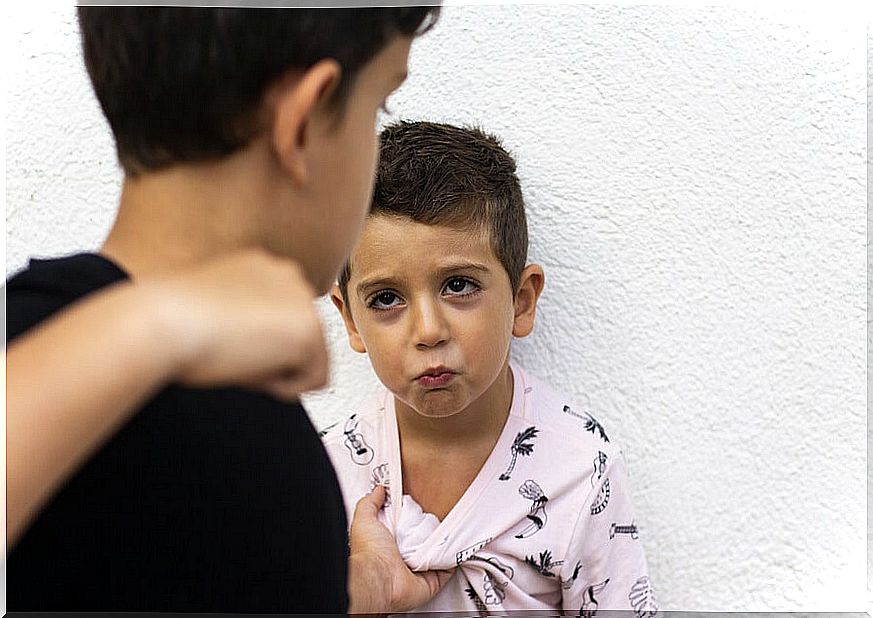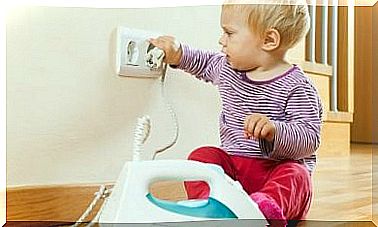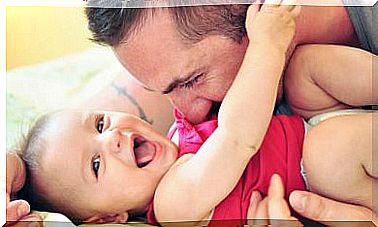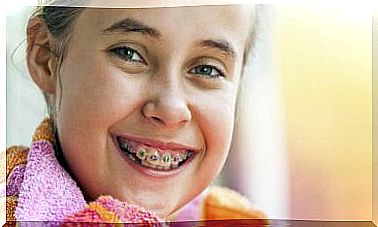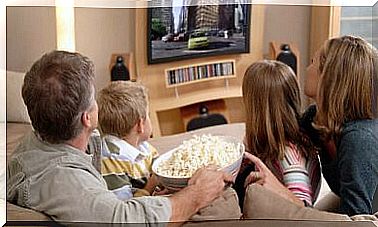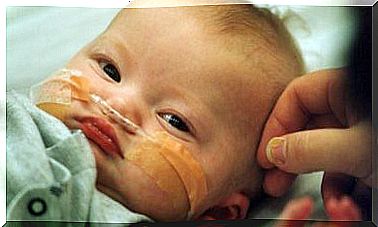Aggressive Behaviors In Children
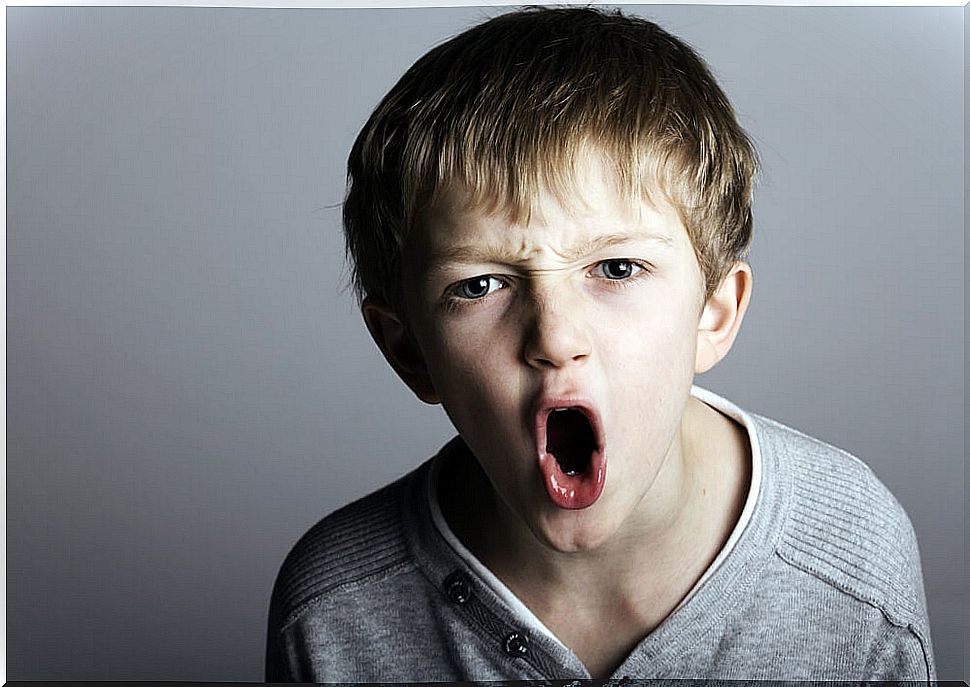
There are many parents and teachers who find it difficult to control aggressive behaviors in children. One reason that could cause this limitation is that the causes of this behavior are simply ignored.
On the other hand, it is true that there are adults who simply for convenience let each of these episodes pass, without taking into account the consequences that these acts may bring in the future for the child and his environment.
Aggressive behaviors in children generally do not start naturally or suddenly, but have very specific causes. An example may be the character of the infant or the influence of the environment where it develops. It is surprising how easily aggressive behavior manifests itself in infants and the lack of tools to redirect it.
Physically mistreating their peers, offending them, teasing, having tantrums, using inappropriate words to address others, drawing attention at all costs so that their whims are indulged, even above the well-being of others, are common characteristics of childhood aggressiveness .
Why are aggressive behaviors manifested in children?
Child aggression is normal in the development of the child in low impact and controlled manifestations, although this seems strange. Many times it is observed how the little one takes his toys or those of his classmates and kicks them, throws them hard to the ground or hits them.
The little ones are constantly developing their cognitive and social skills during their growth. This presents him with a new challenge and, if he feels that he cannot achieve it, he can lash out at the person who is closest to him. Frustration in aggressive children is the main cause of their violent outbursts.
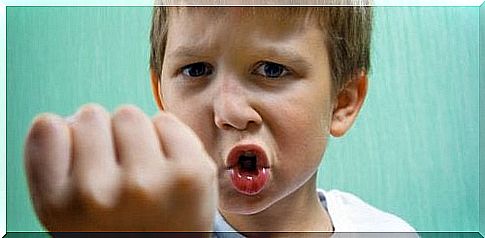
Whatever triggers aggressive behaviors in children is very likely to be overcome as their comprehension and language skills advance to resolve difficulties or challenges in life.
The important thing is that parents are calm and temperate at all times to always be able to maintain control of the situation and apply the appropriate corrections.
Causes of aggressive behaviors in children
Discipline at home
The family is the first and most important social group where the child is included. In it, the basic rules of coexistence and universal values are learned from an early age. If an undemanding or overly rigid education is provided at home, aggressive behaviors can be encouraged.
Child aggression is also influenced by the behavior patterns that children receive from their parents. The little ones tend to imitate what they see at home so, if they live in a hostile environment, they will adopt that model and repeat those attitudes as their primary response.
Organic factors
Other causes that aggressively modify behavior are organic in nature. Examples of this are hormonal lack of control, nutritional deficiency and alteration of brain mechanisms, such as the frontal lobes, which cause behavior to vary and become violent.
Difficulty with social skills
Not all children are capable of developing skills to fit into some social group. Most of the time, this can trigger a tendency to respond violently.
When feeling frustrated and misunderstood, the little one will look for a way to vent and will most likely do it aggressively.
How should one act in the face of aggressive behaviors in children?
Behave yourself
It is important to avoid physical and verbal abuse towards the child. The best way to teach him to modify aggressive behavior is by setting an example.
What parents should do, even if it seems very difficult to carry it out, is to maintain control, breathe deeply and show their child that physical or verbal aggression is not the solution.
Immediate response
When the child shows an outburst of aggression, it is best to respond quickly. You must talk and make him understand that what he does is wrong and that those acts have consequences.
The restrictions that can be applied after each of these episodes, such as reducing the time to watch television, a favorite toy or go out to play, will, over time, yield good results.
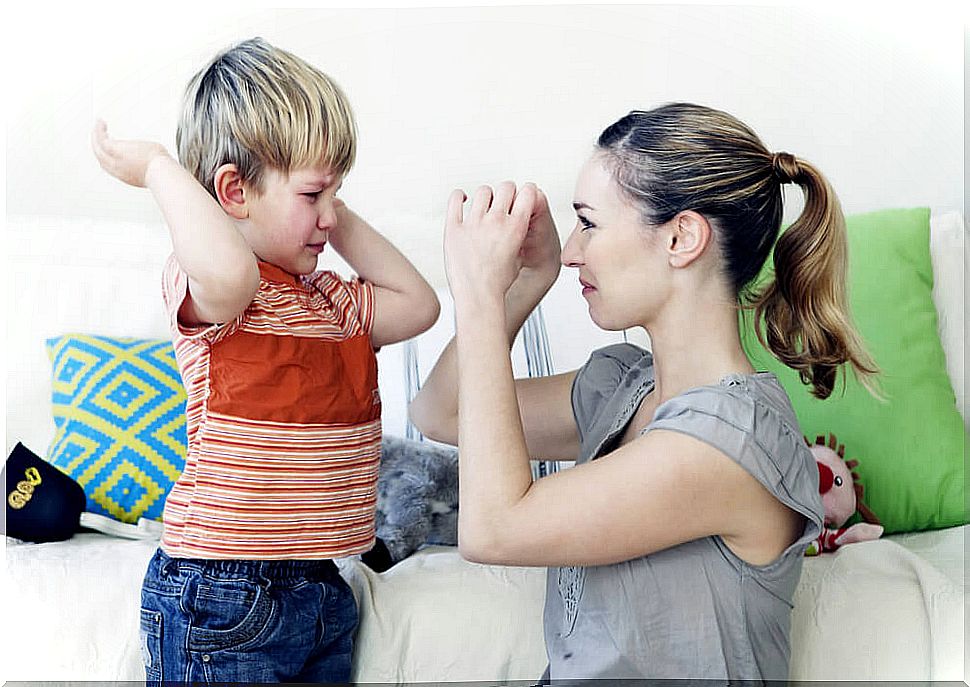
Reinforce good behavior
Just as their outbursts and aggressive attitudes are reprimanded, positive behaviors and any vestige of modification of response to situations that generally unleashed episodes of aggressiveness must be reinforced with equal emphasis and importance.
Recognizing your achievements and good behavior will open the right path to self-monitoring of behavioral responses.
Modifying aggressive behaviors in children is the task of all family members. In the union and teamwork will be the key, as well as in the perseverance, patience and discipline that parents must have especially to achieve every day, through small advances, modify said behaviors.
